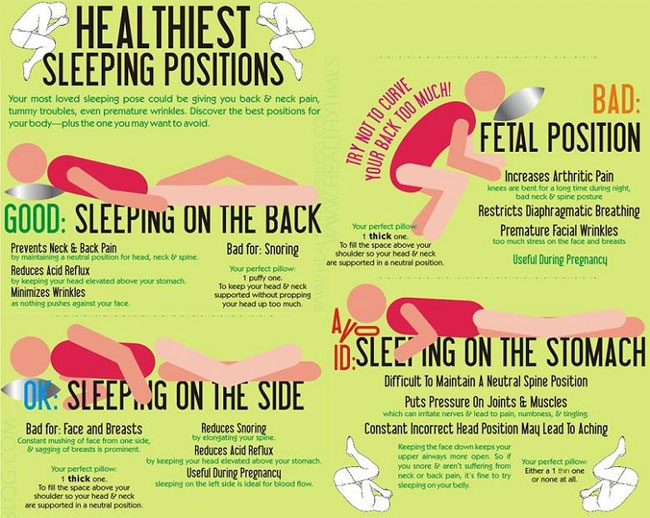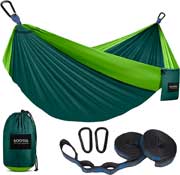 Should you elevate your head while sleeping?
Should you elevate your head while sleeping?
I was very curious about the answer to this question since now I sleep every night in a Viviere hammock, and my head is slightly elevated. I personally find it very comfortable (and I don’t even use a pillow).
However, I still wanted to find out if this was a good thing or a bad thing. So I did some research, and here’s what I found out:
What About Beds that Incline?
Some people believe in the benefits of sleeping with the head elevated that they raise the head of the bed with a few bricks or cinder blocks. It actually has a name: Inclined Bed Therapy (or IBT), and according to NaturalNews.com, this style of sleeping offers numerous advantages:
- Decompression of the skeletal system
- Decreased arthritic pain
- Improved circulation
- Clearer skin
- Lower blood pressure
- Increased hydration
- Less stress on the heart
- Removal of toxins in the body and more.
Although all of these health benefits sound wonderful (especially for a small and inexpensive lifestyle change), I was skeptical. Who wouldn’t be? So I researched some more.
What Do Medical Resources Think?
- The University of Maryland Medical Center even states that “Sleeping in an upright position may improve oxygen levels in overweight people with sleep apnea” as well as elevating the head of the bed.
- WebMD says that elevating your head while sleeping can help reduce swelling and puffiness around the eyes.
- For those with sinus congestion, Dr Satish Govindaraj, MD recommends sleeping with your head elevated so that your head is above your heart. This prevents mucus build up in the sinuses which can then disrupt sleep.
Notes specifically for people who sleep on their backs:
According to BetterSleep.org, people who sleep on their backs often suffer from snoring because of the flat back position. In addition to possibly causing a ruckus, snoring can prevent you from getting a restful night’s sleep – even if you don’t wake up. I’m guessing that any back sleeper can benefit from improved breathing at night.
But wait, there’s more great news for us black sleepers… 😉
This sleeping position is known to also cause sleep apnea or bring about lower back pain. Ouch! Spinlife.com reports that the body is unable to retain proper posture while sleeping on a flat surface. Therefore, muscle and joint tension tends to increase.
Another reason to adjust your sleeping position and avoid a flat bed is to improve circulation by evenly distributing pressure throughout your body. People often accomplish this by elevating their head, feet or both – whether by using an adjustable bed, wedge pillow or some other device.
Are There Benefits to Sleeping Without a Pillow?
 This was another question I had, since I stopped sleeping with a pillow once I started sleeping in a hammock. There’s no need for one, due to the fact that my head is comfortably elevated while I sleep anyway. Here’s what I discovered:
This was another question I had, since I stopped sleeping with a pillow once I started sleeping in a hammock. There’s no need for one, due to the fact that my head is comfortably elevated while I sleep anyway. Here’s what I discovered:
- Dr Weil suggests thinner pillows for people who sleep on their backs. Why? To prevent your head from being thrown too far forward.
- The University of Utah Health Care states that pillows should be used to support the natural curvature of the neck. However, too much elevation can cause strain the muscles in the back, shoulders and neck because it can take your neck, chest and hips out of alignment.
In Summary…
Although I can’t say whether or not you should sleep with your head elevated, with or without a pillow or even use a hammock as a bed, I found all of this information very interesting. I figured at least it could help others figure out ways that they could improve their sleep and maybe even their health.
Hope this helps you!



 Might there be a benefit if you suffer from back pain?
Might there be a benefit if you suffer from back pain? 


